In Japanese companies, the representation of women in management positions (equivalent to section manager or above) is strikingly low, at less than 15%*1. This is a significant contrast to the worldwide average of approximately 30%. Under such circumstances, Recruit which has appointed diverse members regardless of gender or educational background since its foundation. In 2006, Recruit established a dedicated DEI department and made significant strides in transforming its environment to become more equitable and welcoming for everyone. As a result, in 2022, the percentage of women in first-line managers has increased three fold compared to 2006. As we speak with leaders of organizations who have implemented gender equality initiatives, we explore the changes that have occurred within their organizations and the positive impact on their businesses.
*1 Source: Based on 2021 data from ILOSTAT "[5.5.2] Proportion of women in managerial positions (%)"
Recruit Strives for World-class Standards in Japan, a Country with a Gender Equality Gap
According to the World Economic Forum's 2022 Gender Gap Index, Japan ranked 116th out of 146 countries*2 and had the lowest percentage of female managers among G7 nations*3.
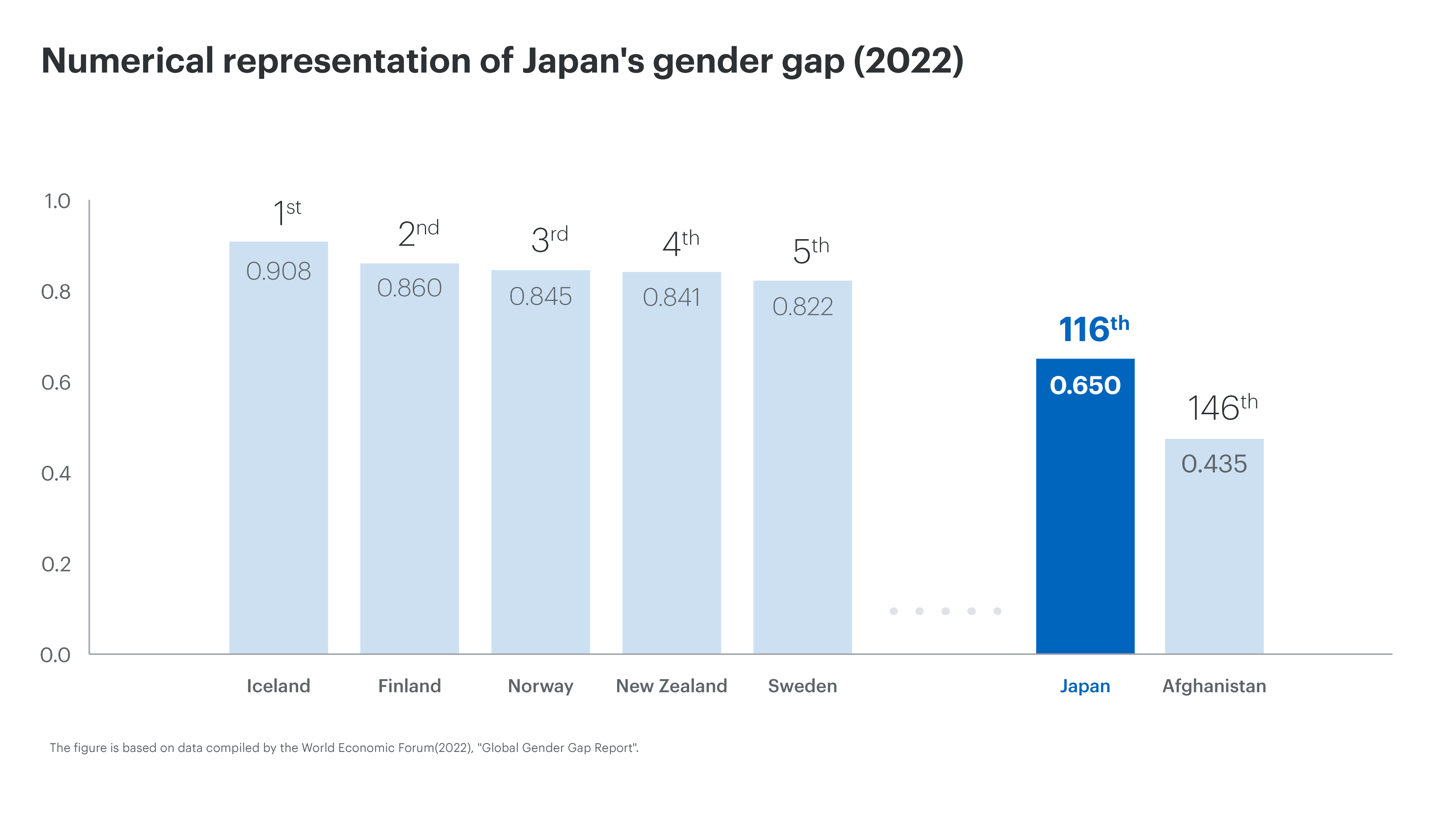
*2 Source: Figures based on World Economic Forum (WEF) Global Gender Gap Report 2022
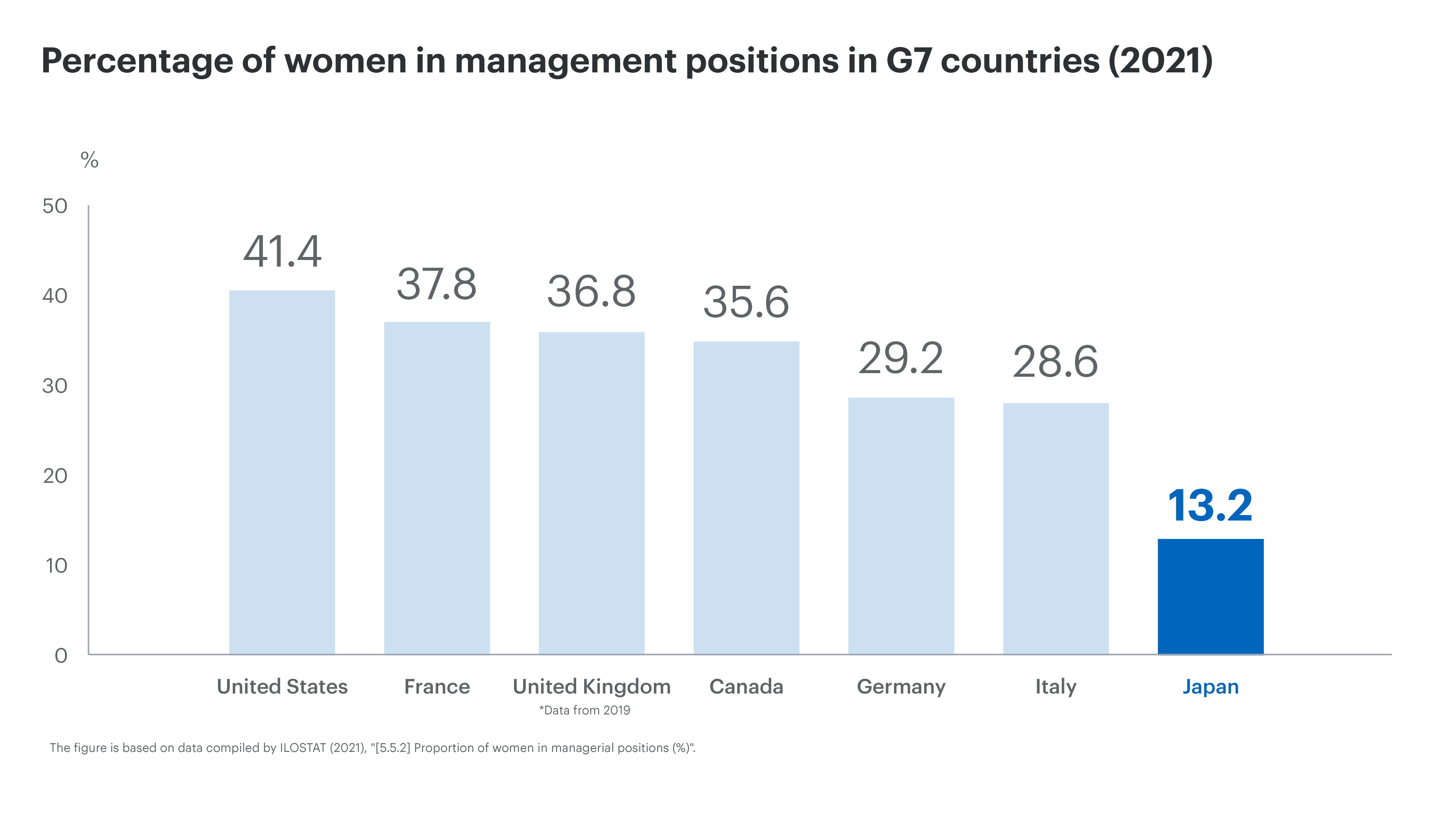
*3 Source: Based on 2021 data from ILOSTAT "[5.5.2] Proportion of women in managerial positions (%). England is excluded due to data availability
The current situation shines a light on the existence of deep-rooted gender-based role divisions in Japan, where unconscious bias towards gender remains stronger than in other countries. For instance, women in Japan spend 5.5 times more time than men on unpaid care work such as housework, childcare, and nursing care*4; a gap that’s the largest among developed nations.
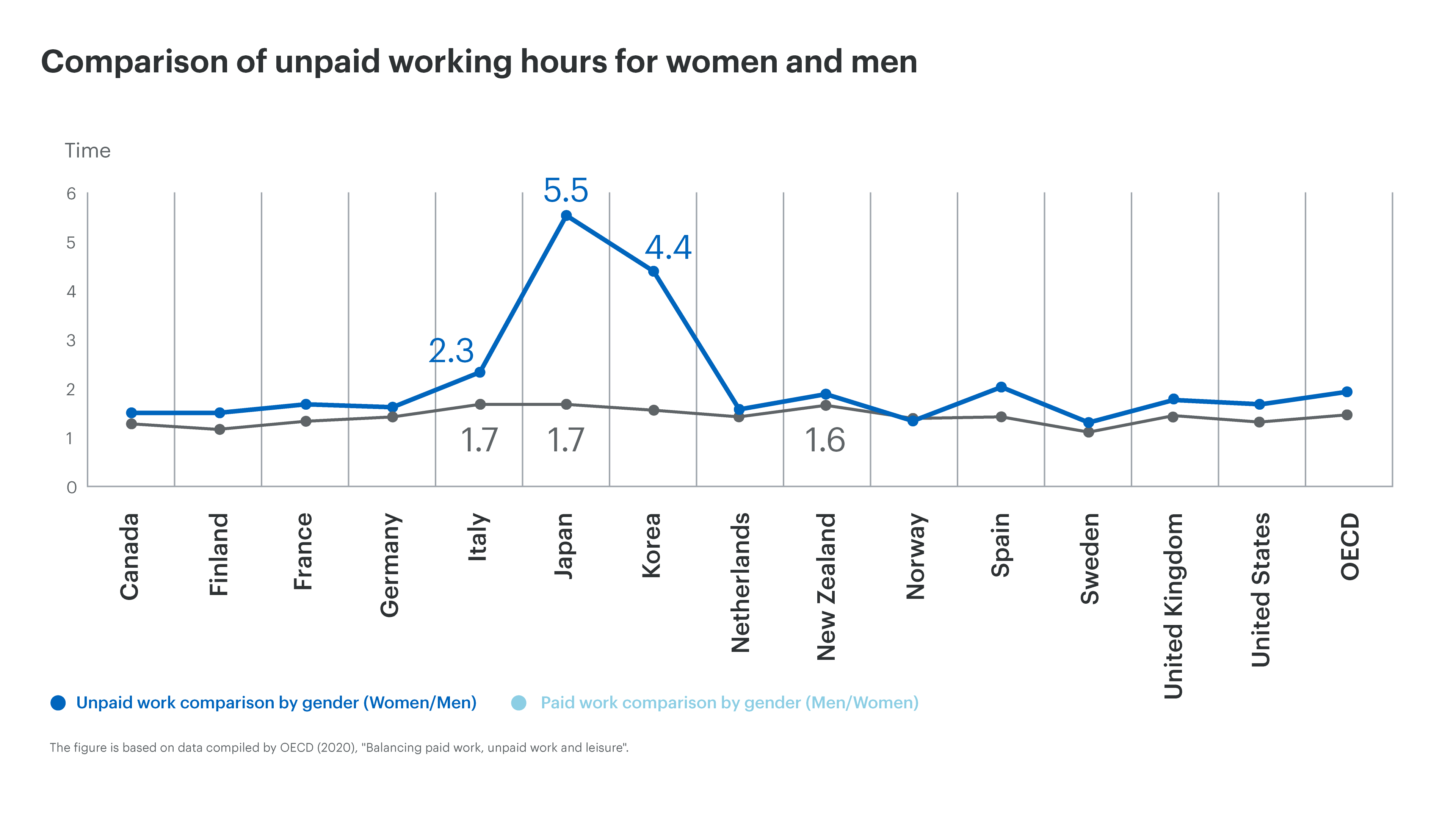
*4 Source: Figures based on OECD’s Balancing paid work, unpaid work and leisure 2020 data
Recruit Group has established an ambitious women's representation goal to achieve gender parity among senior executives, those in managerial positions, and all employee levels by FY2030. Recruit, one of the major business entities of the group which primarily operates within the Japanese market, also created a three-year mid-term target by business or department and plan under this goal and has implemented multiple initiatives to achieve the Group target. The subsequent three case studies exemplify the resulting impacts that have started to emerge.
Appointments of Diverse Leaderships Boost Feasibility of Strategies and Risk Response
One way Recruit is promoting gender equality in management positions is by clarifying the requirements for such roles. One of the leaders involved in this effort is Takeshi Kato, Head of Sales division, who recognized the need to address the under-representation of women in leadership positions. Takeshi clarified the necessary competencies and behaviors for managers in each organization, serving as the foundation for discussions when selecting candidates for management positions.
Following the implementation of these requirements in several organizations within Recruit, the number of women candidates for first-line managers has increased by an average of 1.7 times. Moreover, the number of men candidates for first-line has also increased by 1.4 times, indicating a move towards diverse leadership irrespective of gender.
Takeshi stated, through dialogues "We have gained numerous new perspectives by requestioning ourselves like, 'Are the skills and work methods that we have been seeking in managers based on our past successes truly necessary?' By questioning these assumptions, we have gained various insights, and our management team's awareness has transformed significantly.”
Takeshi suggested that clarifying management position requirements enables decision-making based on competence and eliminates unconscious bias. As a result, the number of female candidates for management positions has doubled in Takeshi's organization alone, demonstrating the benefits of this change.
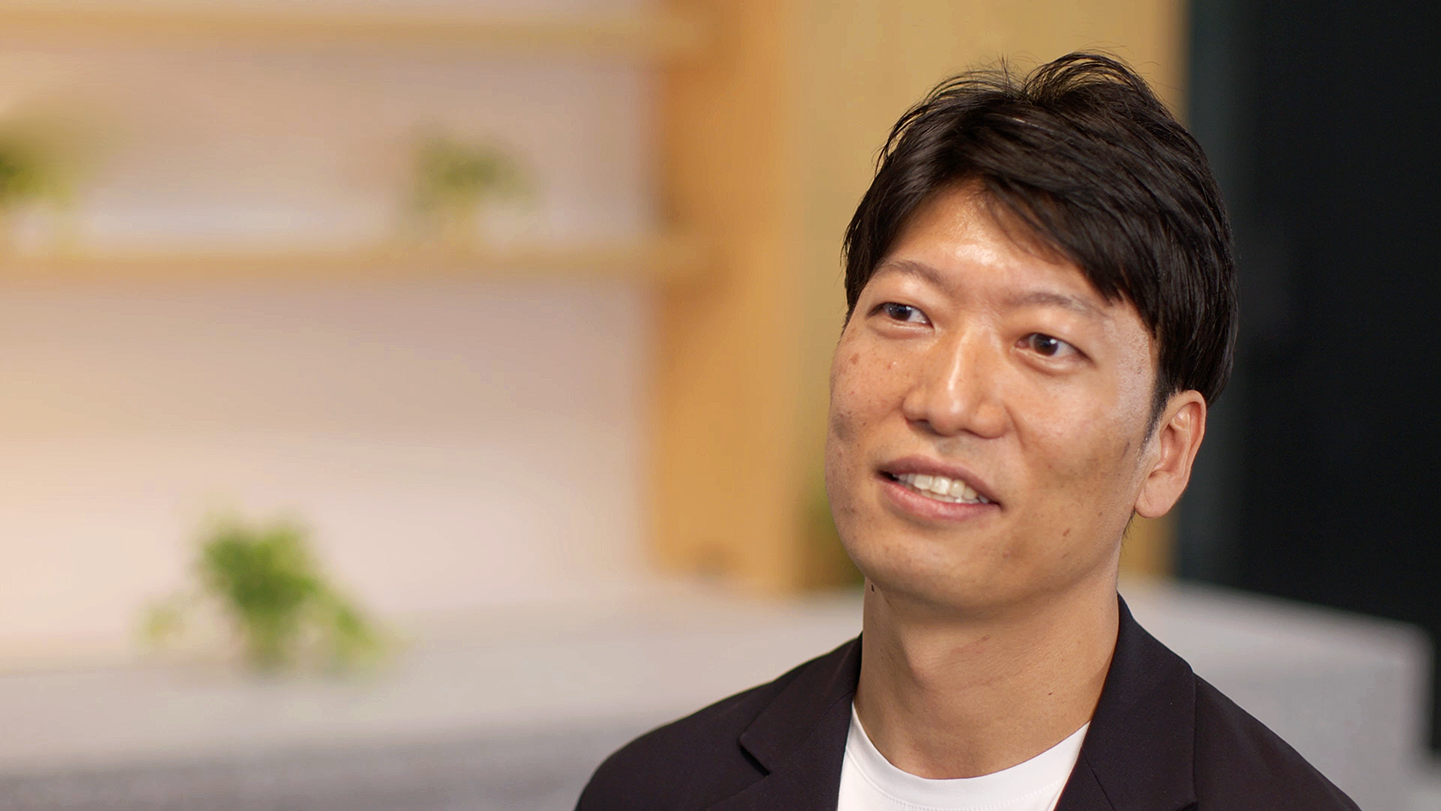
Takeshi Kato, Head of Mid-Career Sales, HR Solutions Department, Sales Division, Recruit Co., Ltd.
Takeshi underscored the significance of developing leaders with diverse strengths, stating, "A homogenous organization tends to be slow to cope with major environmental changes. Furthermore, creating leaders with diverse strengths is expected to positively impact the organization and the business, resulting in diverse strategies being more feasible. Suppose we have a mosaic of diverse people working together. In that case, there will always be people who can play to their strengths, even in times of major change." He added that ensuring diversity in all aspects is a practical risk mitigating measure in unpredictable times.
The Importance of Diversity in Creating Products that Meet Diverse Customer Needs
Keiichi Ushida, the executive officer in charge of the SaaS solution Air BusinessTools at Recruit Group, emphasizes the importance of diversity in product development. Air BusinessTools represents one of the Recruit Group's three management strategies: "Help businesses work smarter." And the platform has 4.53 million*5 potential customer establishments diverse in demographics, orientation, familiarity with technology, and usage patterns. To meet the needs of these various customers, Keiichi believes it is crucial to involve a range of perspectives in the development process.
According to Keiichi, having a diverse team — with “diverse” not limited to gender — leads to a broader range of “imagination,” resulting in products that better cater to customers' needs. "The more diverse opinions we can get, the better products we can produce for our customers. It is much more efficient than doing a large amount of A/B*6 testing for all possible scenarios," he said. By utilizing the diversity of the team, Air BusinessTools can create products that genuinely meet the needs of all customers.
*5 The Company estimated the number of business locations and stores that can be potential users of SaaS solutions provided by Matching & Solutions SBU as of June 30, 2022 in Japan by identifying the total number of business locations and stores of small and medium-sized enterprises in Japan (using the definition used by Small and Medium Enterprise Agency) based on the 2016 Economic Census for Business Activity conducted by the Ministry of Internal Affairs and Communications and the Ministry of Economy, Trade and Industry.
*6 A method of user testing that involves preparing two versions of a product: the original or currently implemented version, known as Pattern A, and a version with changes to that original version, known as Pattern B. The two versions are then compared to determine which one is more acceptable to users.
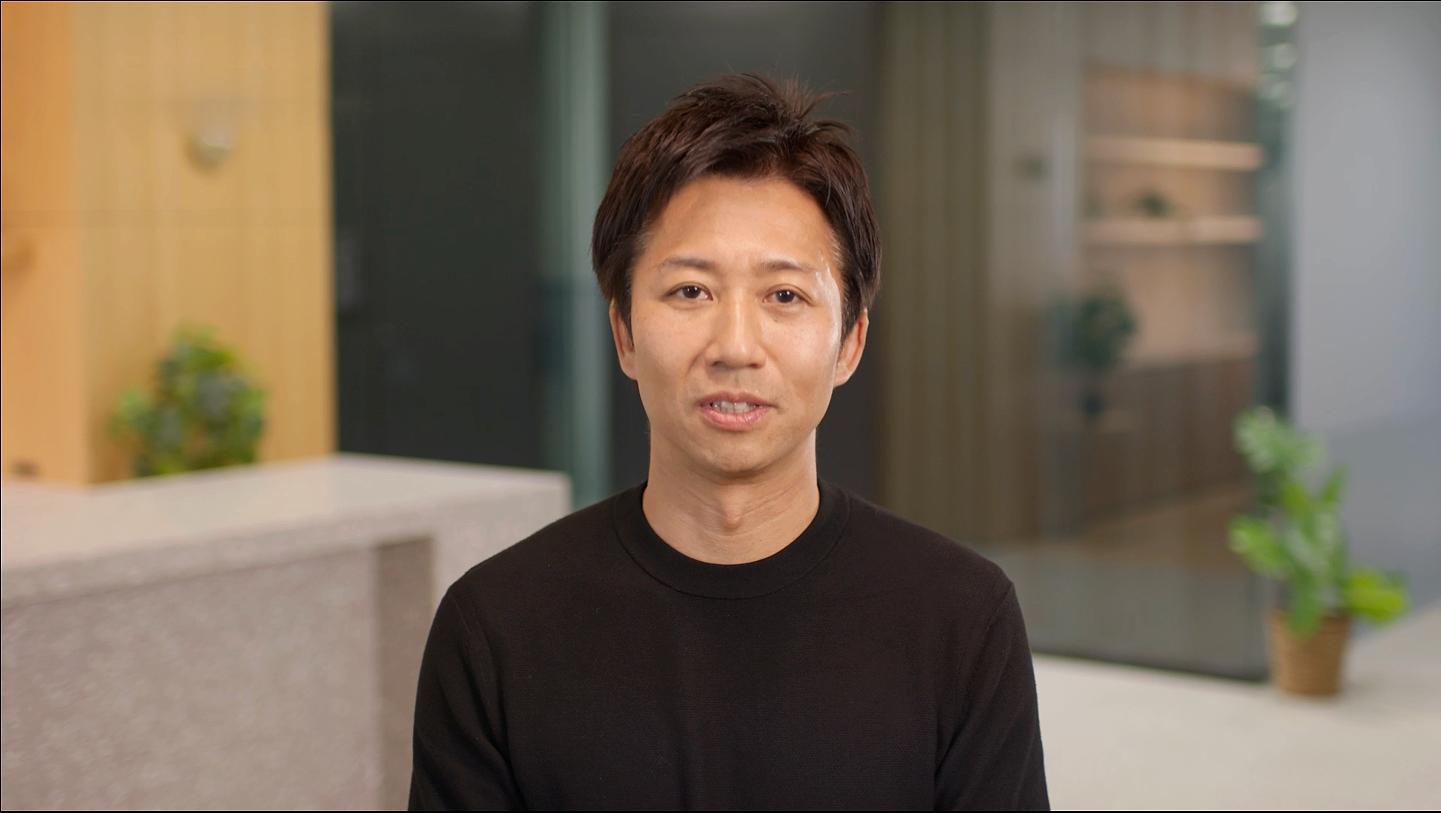
Keiichi Ushida, Corporate Executive Officer Product Division, in charge of SaaS Business, Recruit Co., Ltd.
However, Ushida himself faced challenges when trying to promote gender diversity in his organization. He found that women often lacked role models and felt discouraged from pursuing leadership roles, thinking that they had to emulate the few preceding women leaders. "But that's not the case at all," Keiichi said. "We want to show that there are many different images of what a manager or executive can be, and that having diversity in leadership is important."
After conversing with women in his organization, Keiichi discovered that while they weren't necessarily interested in becoming managers, they still desired to make an impact and help others. He suggested that obtaining a managerial role can actually aid them in achieving these objectives more efficiently. As a leader, Keiichi and other organizational executives strive to foster a culture that appreciates various viewpoints by sparking imaginations and asking thought-provoking questions.
"For me, the key to promoting diversity, equity, and inclusion is recognizing that we don't always understand the situation of other," Keiichi said. "It's through dialogue and making good decisions that we can ultimately make a positive impact on our customers and society as a whole."
Business Growth and Women in STEM: Leveraging Product Creation for Societal Strengths
Innovation relies heavily on technology, yet in Japan, the number of women with backgrounds in STEM education (science, technology, engineering, and mathematics) is limited.
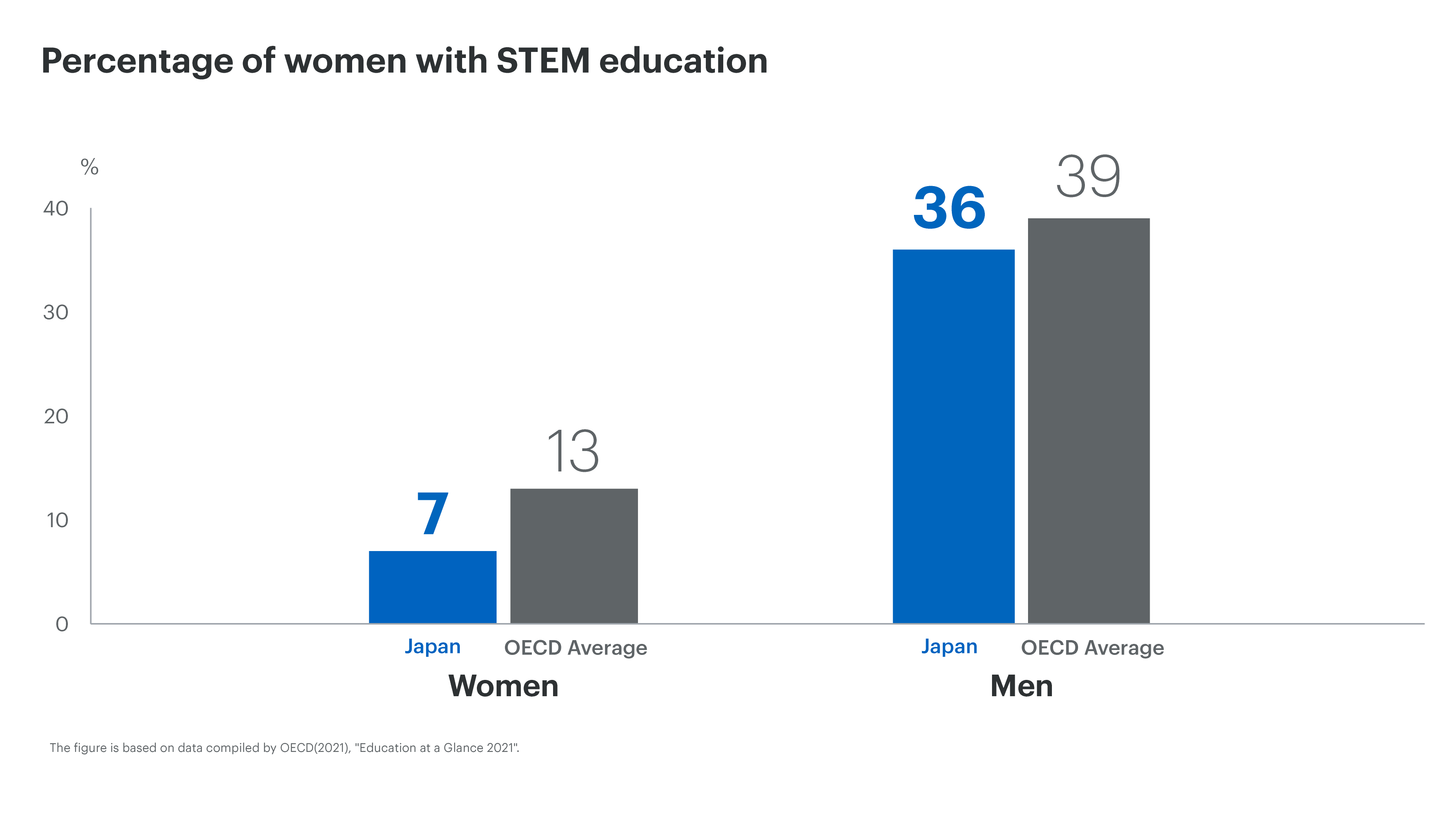
Consequently, fewer women aspire to become engineers. Shiyingxue Li, an engineering manager, noted that ”engineering can actually provide a good work-life balance, since it is deliverable-focused, relatively allows individual work and thus offers flexibility. It is strange that there are few women considering its flexibility to adjust to different stages of life”.
However, women's representation in STEM fields in Japan is only about half of the G7 average. Shiyingxue flagged “this shortage of women in STEM is a loss for companies and society as a whole. Half of the population is women, but only a small percentage can enter the STEM field, meaning we might not be able to have the product that could be there if more women had entered STEM fields”.
Shiyingxue proposed focusing on good product creation and business growth to increase the number of women in STEM fields. ”This can lead to the creation of new positions and appointments of more women. Results from this approach can shift societal attitudes and better leverage society's inherent strengths through a more diverse workforce in STEM and other fields of interest, regardless of gender.”

Shiyingxue Li, Executive Director, Data Science Department, Data Technology Unit, Product Division, Recruit Co., Ltd.
Driving Gender Equality in Japanese Society on International Women's Day 2023
In Japan, achieving gender equality is challenging due to a significant gender gap. However, Recruit Group recognizes the value of trial and error in this pursuit. Their efforts towards gender equality promote the utilization of diverse personalities, regardless of gender, which enhances the organization's adaptability to change. Moreover, Recruit aims to share its knowledge on how to promote and advance gender equality in the workplace with society through its products and customers, contributing to Japanese society to become more inclusive and equitable.
Recruit Group has always believed that people are the source of strength, even before the term "diversity" became popularized. With the theme of gender equality, Recruit aims to contribute to creating a society where innovation stems from the ideas and passions of diverse individuals. Ultimately, they hope to achieve sustainable growth and promote gender equality throughout Japanese society.
Links:
Sustainability: Our People
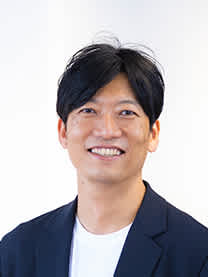
Takeshi Kato
Head of Mid-Career Sales, HR Solutions Department, Sales Division, Recruit Co., Ltd.
Joined Recruit Co., Ltd. in 2006 as a new graduate. Engaged in improving companies’ recruiting capacities at Townwork Kumamoto, HR Minamikyushu, and mid-career MS1 department. In 2013, he became the head of the Entre Unit. After working as General Manager of Human Resources and General Affairs Department at Recruit Career and Executive Officer at Recruit Jobs, he assumed his current position.
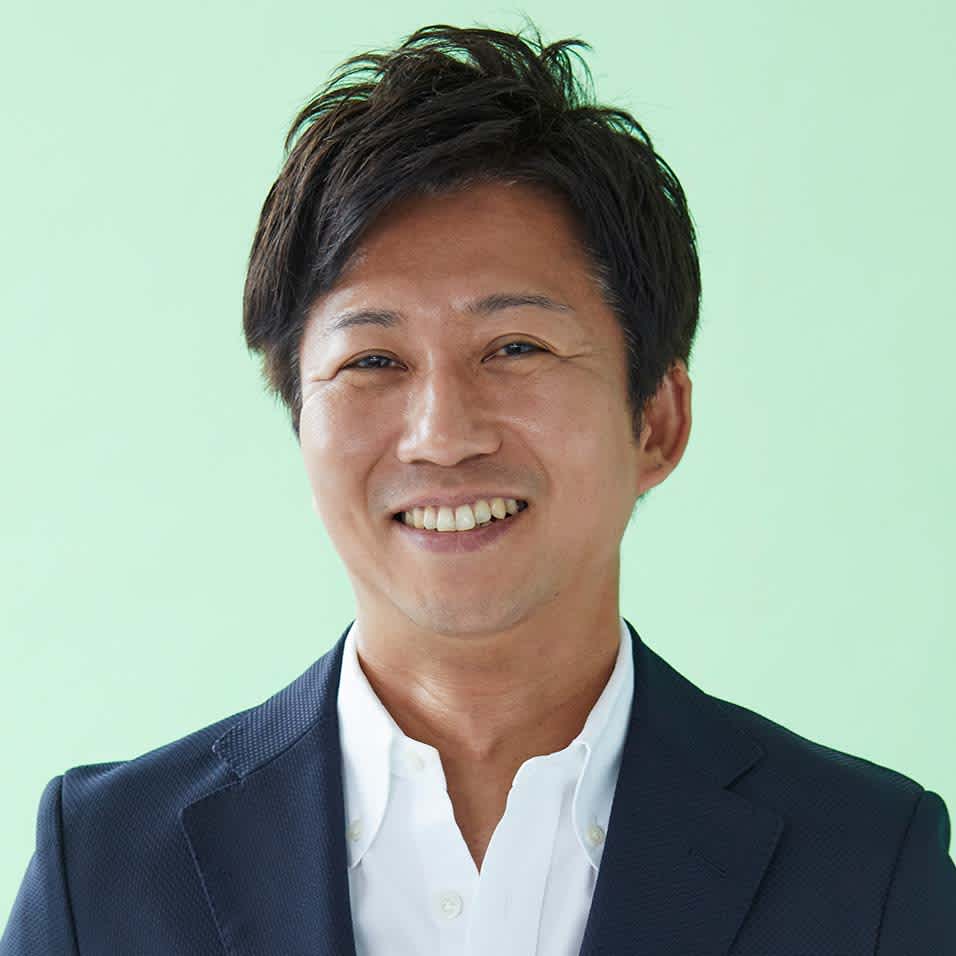
Keiichi Ushida
Corporate Executive Officer Product Division, in charge of SaaS Business, Recruit Co., Ltd.
Joined Recruit Co., Ltd. in 2007 after working at a major fishery company. He was the product manager of “Jalan net”, “Hot Pepper Gourmet” and “Hot Pepper Beauty”, was the producer of “Ponpare”, and was in charge of launching “Ponpare Mall” and “Recruit Card”. Since 2015, he has been the general manager of Recruit Lifestyle’s Internet Business Division, and has been in his current position since April 2020, and is responsible for "Air BusinessTools".

Shiyingxue Li
Executive Director, Data Science Department, Data Technology Unit, Product Division, Recruit Co., Ltd.
Joined Recruit Co., Ltd. in 2013 as a new graduate. She majored in Computer Science at Peking University. While in school, she got a job offer from Recruit through "WORK IN JAPAN", a global talent acquisition project run by Recruit Holdings. Currently involved in the development and operation of the real estate information site "SUUMO" as a programming and data analysis specialist.